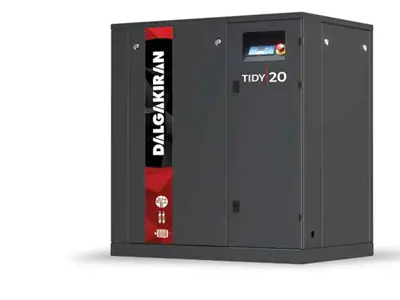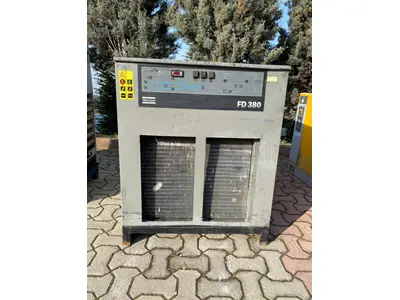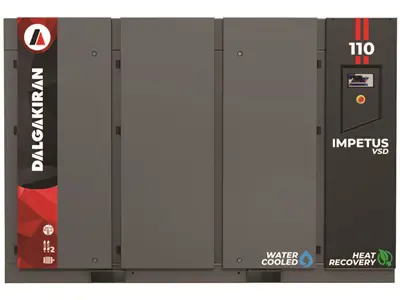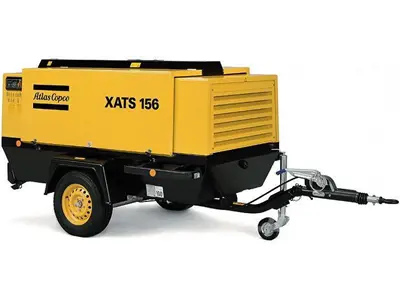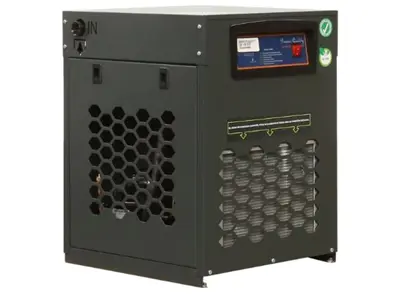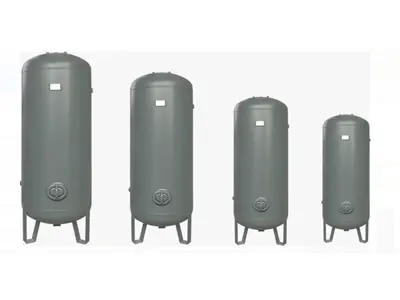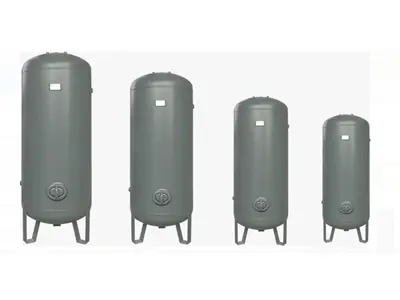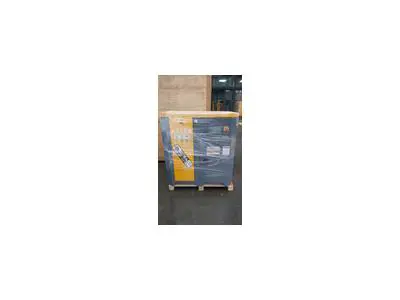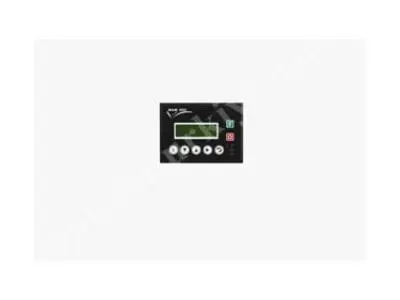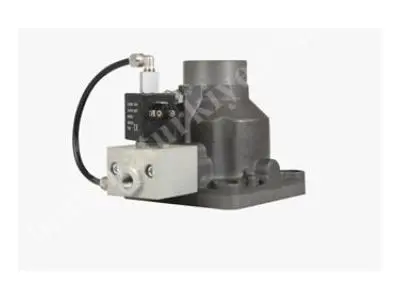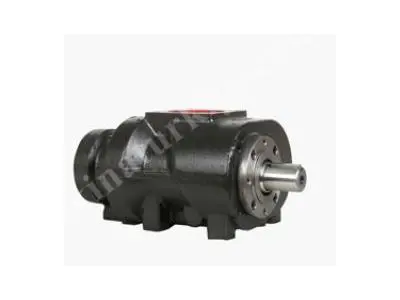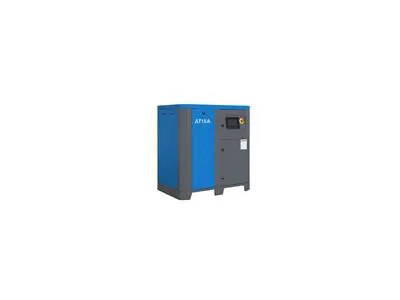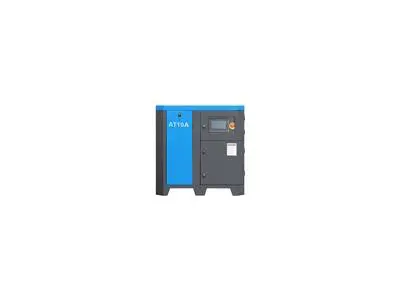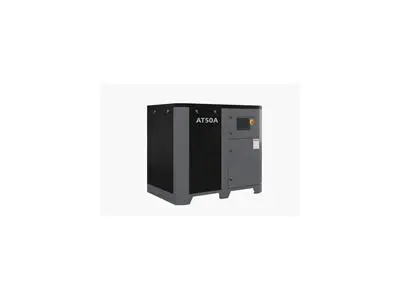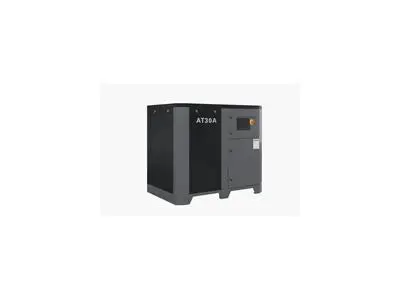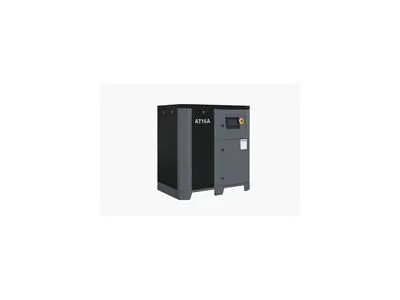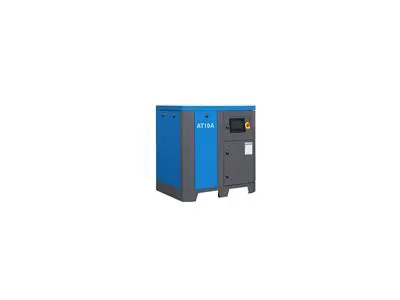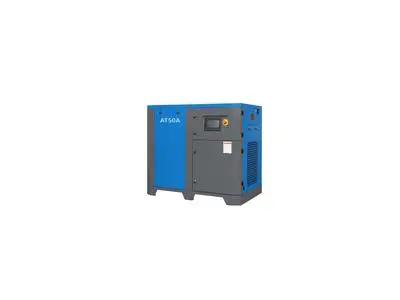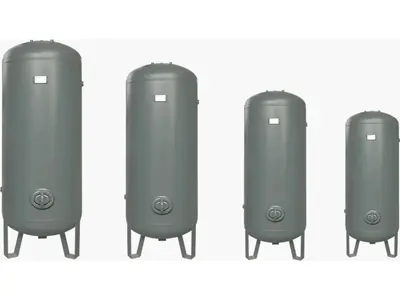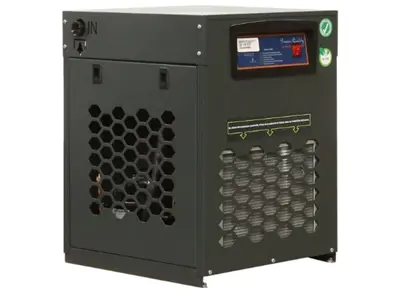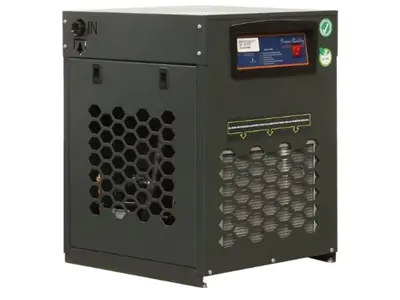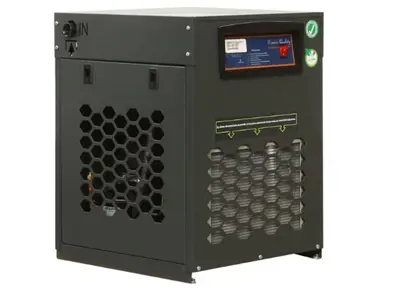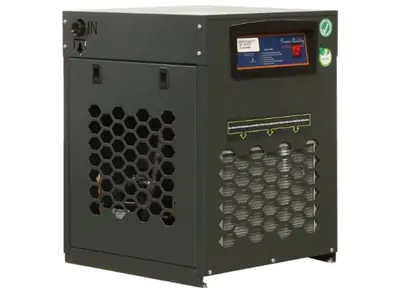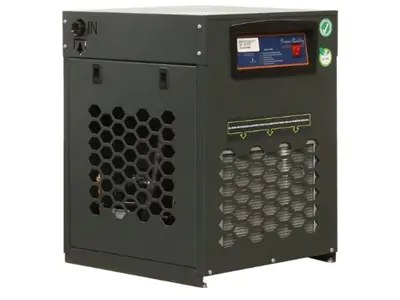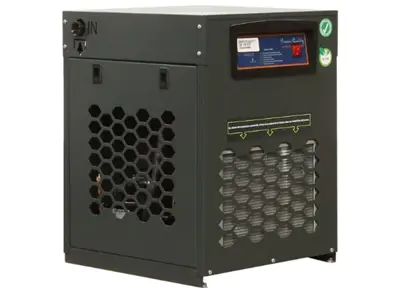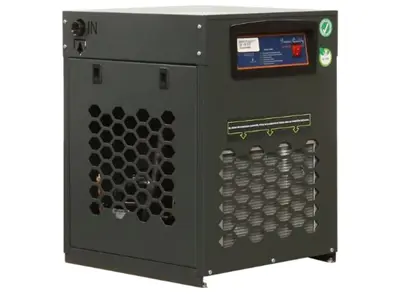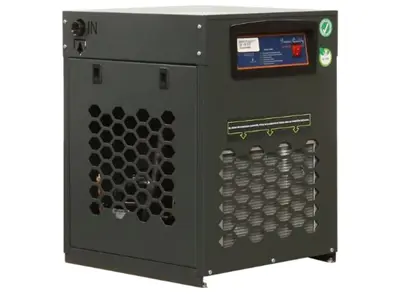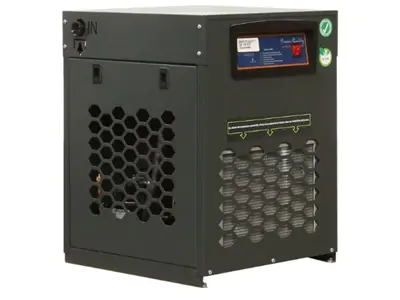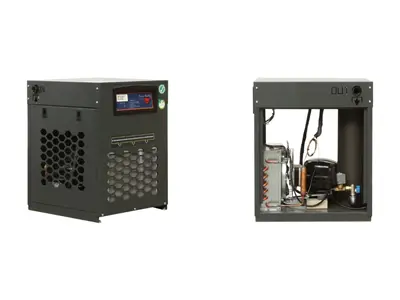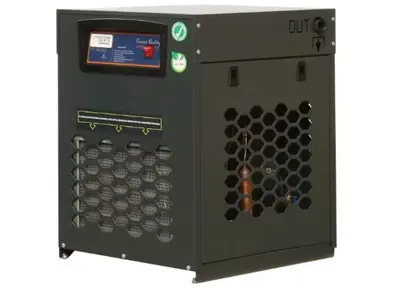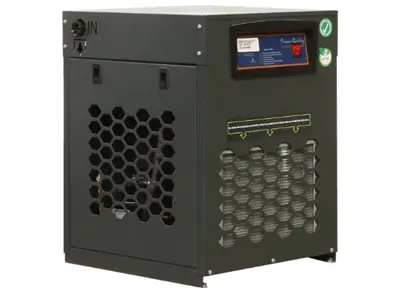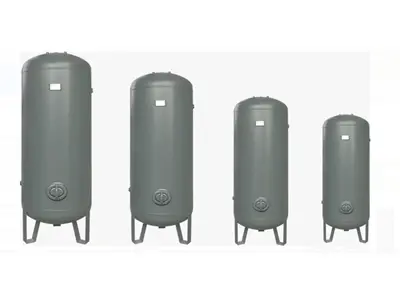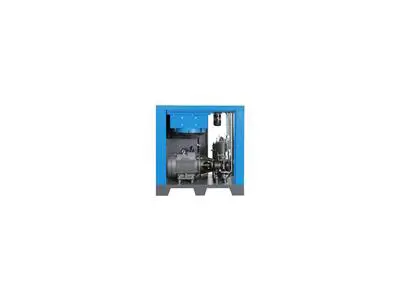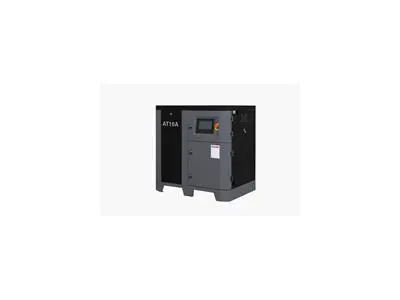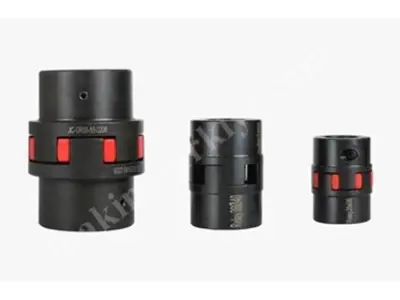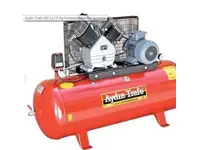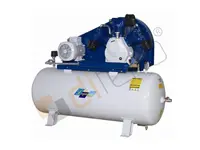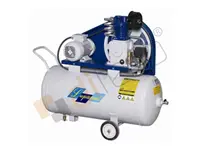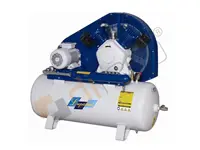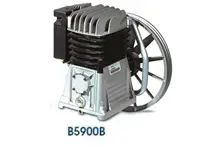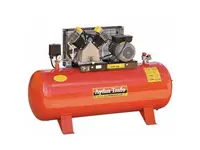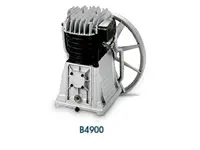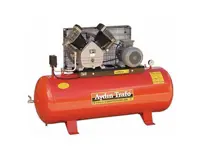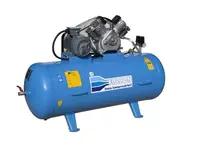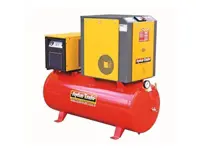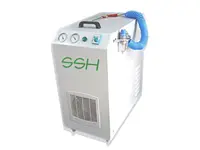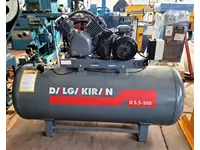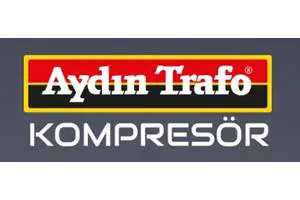Compressor Popular Products
What is a Compressor?
In our industrial and daily lives, many devices and systems we encounter rely on compressors to perform their functions. However, many of us may not fully understand what this important device is or how it works. A compressor is a mechanical device or system used to compress gas or liquid to a denser state. It derives its name from the Latin word "comprimere," which means "to compress" or "to press," describing the fundamental function of a compressor. It works by reducing the volume of gases or liquids. It involves compressing the gas or liquid under pressure.
They perform the compression process using energy provided by a motor or motor-like power source. Compressors can be of different types. For example, air compressors are used to compress atmospheric air or gases. Compressors are widely used in the operation of pneumatic tools, inflating car tires, or industrial processes. In addition, cooling compressors are also important. Refrigerators and air conditioning systems in our homes reduce the temperature inside using cooling compressors. These compressors operate by compressing a type of gas, which results in a decrease in temperature.
There are also special gas compressors used in the oil and gas industry. They are used to transport natural gas in pipelines or compress gas for refinery processes. They play a vital role in many industrial processes and in our daily lives. They are indispensable for many applications that require compressing gases or holding them under pressure. They appear everywhere from air conditioning systems to car tires, ensuring the efficient operation of many devices.
What are the Types of Compressors?
Compressors play an important role as versatile mechanical devices that compress gases or liquids. Due to the different requirements of various applications, there are many different types of compressors.
Mini compressors are extremely practical and portable devices that can be used in our daily lives. These small compressors are designed to compress air or gases and can be used for many different applications. Small compressors are commonly used for tasks such as inflating car tires, bicycle tires, sports equipment, or air mattresses.
Air Compressors are used to compress atmospheric air and produce compressed air. They come in various designs such as piston, screw, or diaphragm types. Air compressors are used in industrial processes for operating pneumatic tools, supplying compressed air to air tanks, and many other applications.
Vehicle compressors play a crucial role in the safety and fuel efficiency of drivers and car owners. Proper tire pressure allows for better control of the vehicle on the road and offers a safer driving experience. Additionally, tires with low air pressure can consume more fuel and cause tire wear.
Cooling compressors are used in refrigerators, air conditioning systems, and other cooling applications. They compress refrigerant fluids to transport thermal energy and thus cool interior spaces. They come in digital, scroll, reciprocating piston, and other types.
Gas compressors are used in applications such as natural gas transportation, petrochemical industry, and gas transmission systems. They are designed to compress and transport high-pressure gases. They have different types such as single-stage and multi-stage gas compressors.
Silent compressors are special air compressors that improve the design and operation of traditional compressors. Features such as sound insulation, vibration control, and special design technologies make these compressors quiet. Unlike traditional compressors, silent compressors produce much less noise during operation, creating a better working environment in workplaces and other application areas.
Screw compressors are a type commonly used in industrial applications. They work by compressing gas between two screw rotors. Screw compressors are preferred for their high efficiency and low maintenance requirements.
Diaphragm compressors use flexible diaphragms to compress gases. They are suitable for gases that you do not want to be exposed to in the chemical industry. Since only the diaphragm comes into contact with the gases, the risk of contamination is low.
Radial compressors compress gases using a rotor that spins at high speeds. They are found in high-performance applications such as jet engines and turbochargers.
Each type of compressor has specific characteristics suitable for a particular application or industry. When selecting a compressor, it is important to consider functionality, efficiency, and maintenance requirements to choose the right type.
Compressor Applications
It is a fundamental engineering device for a wide range of applications and has become an integral part of many industries and our daily lives. They play an essential role in the energy, compression, storage, and transportation of energy designed to compress gases or liquids.
- Industrial Applications:
Air Compressors: Widely used in industrial processes. They are a fundamental component in operating pneumatic tools, product transport systems, and automation systems.
Gas Compressors: Used in sectors such as the chemical industry, oil and gas production, petrochemical plants, and energy production to compress high-pressure gases.
- Cooling and Climate Control:
Cooling Compressors: Used in cooling equipment such as refrigerators, air conditioning systems, and freezers. Air conditioning compressors compress refrigerant fluids to lower the temperature and cool interior spaces.
- Food Processing:
Used in the food industry for packaging, freeze production, and other processes. Compressors are required for vacuum machines used to process or package products.
- Energy Production:
Gas Turbines: Gas turbines use compressors to compress gas at high speeds and generate energy for electricity generation.
Nuclear Power Plants: Compressors are used in cooling systems in nuclear reactors.
- Transportation:
Vehicle Compressors: Also known as tire inflation compressors, they are used to inflate tires in cars and other vehicles.
Aviation: Compressors are used in aircraft engines and cabin pressurization systems.
- Oil and Gas Industry:
Gas compressors are used in oil and gas production and processing facilities for compressing and transporting natural gas.
- Medical Applications:
Medical gas systems include compressors for oxygen production and distribution. They are used in oxygen production in hospitals.
The various applications of compressors play a vital role in many industrial processes, daily life, and various aspects of technology. Each application uses different types of compressors and designs due to specific requirements. Compressors demonstrate various functions and flexibility, supporting many aspects of modern life.
What is the Operating Principle of a Compressor?
Compressors are important mechanical devices that perform the process of compressing gases or liquids. Used in construction, industry, energy production, air conditioning, and many other fields, compressors primarily work by reducing the volume of a gas to increase its pressure and density. Understanding the operating principle of compressors helps us understand how this fundamental process occurs. They are used for many different applications that require the compression of gases or liquids. Ventilation systems, cooling systems, industrial processes, transportation systems, and many other areas can be found.
The operating process begins with the suction stage. In this stage, the gas or liquid is drawn in through the compressor's suction valve or valves. The suction stage can involve taking gas or liquid from the external environment or a source and transitions to the compression stage, where the drawn gas or liquid is directed to the compression chamber. The compression chamber is a section designed to pressurize the gas and reduce its volume. The compressor's motor or power source provides the energy needed to compress the gas. The compression stage represents the compression of the gas at the molecular level and an increase in pressure. The discharge stage occurs after the compression of the gas, where the highly compressed gas is released outside the compressor through the discharge valve or valves. This stage may involve redirecting the compressed gas to the application where it will be used. Compressors come in different types and designs based on their functions and design features. For example, piston compressors compress the gas by the forward-backward movement of pistons. Screw compressors carry out the compression process through rotating screws. Diaphragm compressors, on the other hand, compress gas using flexible diaphragms.
From cooling systems to air compressors, food processing machines to energy production, compressors fulfill a variety of functions in many different application areas. Understanding their operating principles is essential for the efficient use and maintenance of these devices.
Compressor Prices
Compressors play a crucial role in many industrial and residential applications and are available in a wide range of types and capacities. Compressor prices vary depending on several factors. Capacity, for example, there is a price difference between a 50-liter compressor and a 100-liter compressor. Type, brand, and quality, power source, size and portability, additional features; such as sound insulation, automatic control systems, or energy efficiency features. These additional features may increase the price.
Air Compressors: A small air compressor for household use can be priced between 100-500 dollars, while industrial air compressors can cost thousands of dollars.
Cooling Compressors: Cooling compressors for home refrigerators or air conditioning systems are typically priced between 100-500 dollars, while prices for large industrial cooling systems can be much higher.
Gas Compressors: The prices of gas compressors vary widely depending on capacity and intended use. Small household gas compressors can be priced between 1000-5000 dollars, while large industrial gas compressors can cost tens of thousands of dollars.
For compressor prices that vary depending on many factors, you can check out makinaturkiye.com. When choosing a compressor that suits your needs, consider not only the cost but also the quality, efficiency, and features. Additionally, you can find the most suitable offer by comparing prices from different sellers.
Hundreds of brands and models, instant access to the seller, buying and leasing options in the Compressor category
